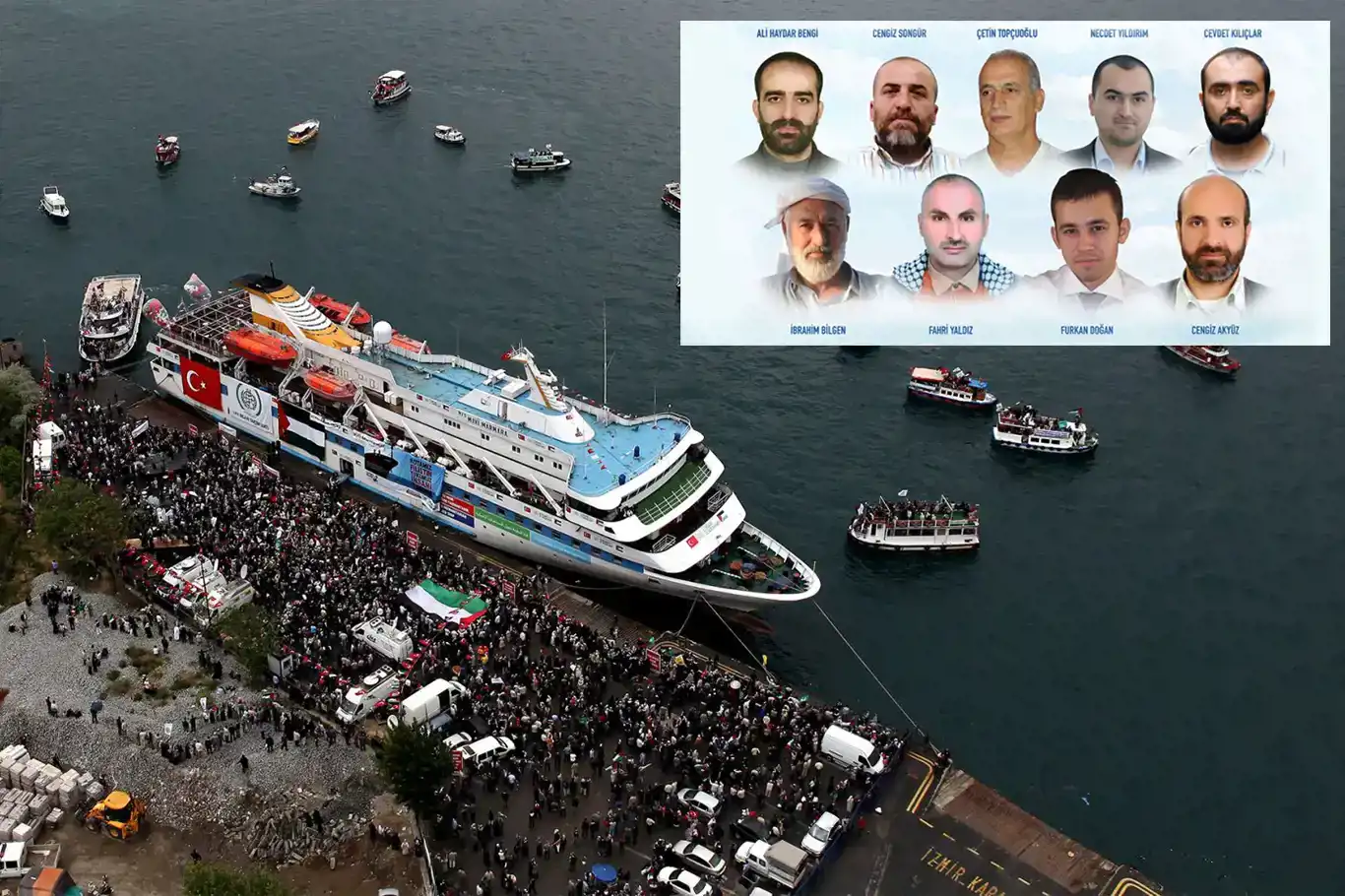Thirteenth anniversary of Mavi Marmara massacre: Remembering the tragedy and advocating for justice


It has been thirteen years since the zionist forces launched a violent assault on the Mavi Marmara ship as part of the Freedom Fleet's mission in May 2010.
The flotilla aimed to challenge the blockade imposed on Gaza and was carrying international human rights activists.
In the early hours of May 31, 2010, israeli commandos, using speed boats and helicopters, attacked the six-boat flotilla in international waters.
The largest vessel, the Mavi Marmara, became the scene of a devastating attack .
The attack resulted in the deaths of ten activists. Nine were killed during the raid: Cengiz Akyüz (42), Ali Haydar Bengi (39), İbrahim Bilgen (61), Furkan Doğan (18), Cevdet Kılıçlar (38), Cengiz Songür (47), Çetin Topçuoğlu (54), Fahri Yaldız (43), and Necdet Yıldırım. The tenth to die, Ugur Süleyman Söylemez,, died 23 May 2014, in hospital, after having been in a coma for four years.
The zionist forces seized control of the boats, detaining all passengers and crew, and subsequently took them to the port of Ashdod.
During their detention, the individuals were kept incommunicado for several days, with videos, photos, and other forms of media being confiscated.
The hundreds of kidnapped passengers were denied access to the media, preventing them from sharing their firsthand accounts of the incident.
Today, on the thirteenth anniversary of the Mavi Marmara attack, the international community remembers the tragic events that unfolded that day.
The assault sparked widespread outrage and drew attention to the ongoing humanitarian crisis in Gaza and the effects of the blockade.
The Mavi Marmara incident stands as a stark reminder of the need for continued efforts to address the situation in Gaza and ensure the protection of human rights.
As the world reflects on this solemn anniversary, calls for justice and accountability for the victims of the attack persist, emphasizing the importance of upholding international law and promoting peace in the region. (ILKHA)
LEGAL WARNING: All rights of the published news, photos and videos are reserved by İlke Haber Ajansı Basın Yayın San. Trade A.Ş. Under no circumstances can all or part of the news, photos and videos be used without a written contract or subscription.
The European Union is grappling with an unprecedented escalation in drug trafficking, with officials estimating that over 100 tons of cocaine enter the continent each year—a figure that European security agencies admit may represent only a fraction of the true scale.
On November 2, 1917, British Foreign Secretary Arthur James Balfour sent a short letter to Zionist leader Lord Rothschild, pledging Britain’s support for a Jewish homeland in Palestine.
One year has passed since Yahya Sinwar, the legendary leader of Hamas in the Gaza Strip, was martyred in a direct confrontation with Israeli forces in Rafah.
Two years have passed since the morning that forever altered the course of the Palestinian struggle — the dawn of October 7, 2023, when the besieged enclave of Gaza broke through its prison walls in a thunderous uprising now etched into history as Operation Al-Aqsa Flood.